The ex-trader turning disabilities into profits
- Published
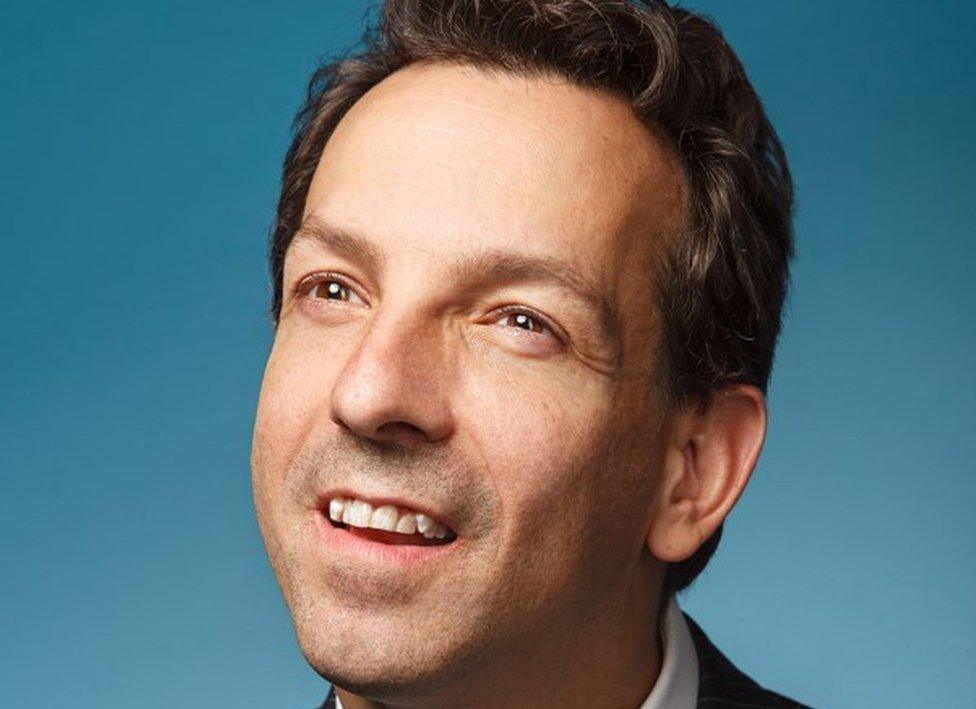
Rich Donovan worked as a trader for 10 years on Wall Street
It's a fast-paced, risk-taking industry glamorised by Hollywood and writers alike, but when one Wall Street trader left the floor he identified a huge market being ignored by the business world.
Canada-based businessman Rich Donovan worked as a trader for Merrill Lynch for 10 years after he graduated from the prestigious Columbia Business School. It was competitive enough, but with cerebral palsy he felt he had more to prove.
"I was told to my face that I would never be a trader. They were wrong, but that's just the reality of having a disability. You figure out how to work around it."
He says he was asked at every job interview, "Can you physically do this job?" His answer was always the same: "I don't know, but we're going to find out."
Donovan was offered every job he went for and says there was "never a time that I hit a barrier, largely because I was 10 steps ahead of what I needed to be".
It is this attitude that has led him to identify a market worth $8 trillion (£6.4tn) and brimming with untapped talent: the disability market.
After he left the trading floor, Donovan set up the Return on Disability Group, external (ROD). The firm helps companies improve their products, customer experience and recruitment for disabled clients, as well as alerting investors to companies that target that market. Its slogan is "translate different into value".
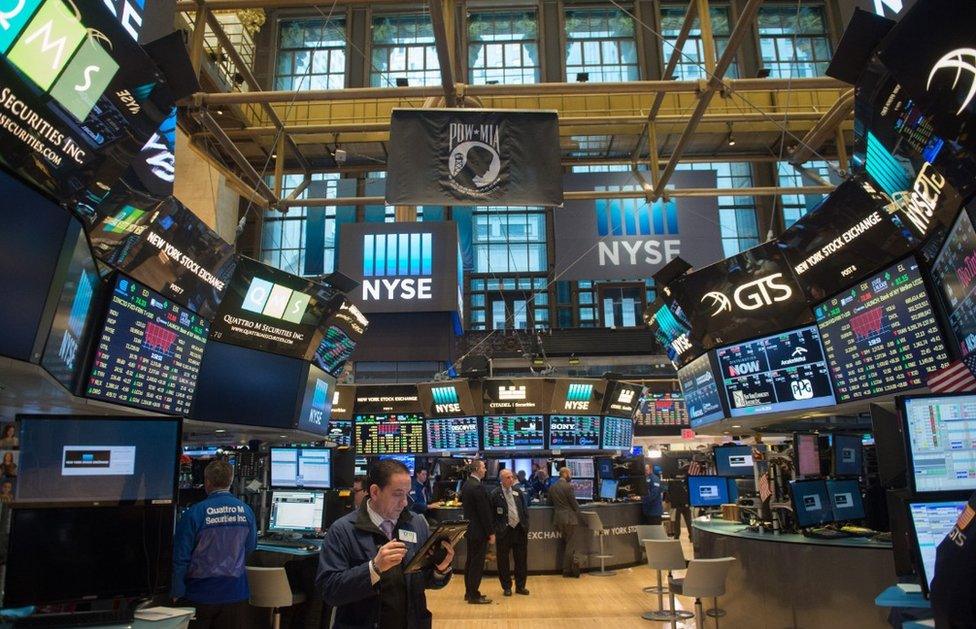
The trading floor of the New York Stock Exchange
He estimates the market comprises about 1.3 billion people with disabilities worldwide, plus an additional 2.42 billion people once their friends and family are taken into account, which Donovan describes as "huge".
It seems hard to believe that such a market could be overlooked, but he says it has largely gone unseen because people look at it from the wrong angle.
The key, he says, is not to consider disability a niche market, but as an "emerging market" - and to challenge the conventional because "companies and governments have no clue how to convert that size into value".
Donovan says traditional government schemes to get more disabled people into work or bespoke products made for disabled people fail to properly utilise the market.
For that, you need to think beyond lunches and motivational talks and remember business is always about money.
"Most companies think they need to be perfectly ready to provide an 'accessible' space for disabled workers. The reality is disabled people know what they need to be successful. Companies only need to listen and adjust to those needs," he says.
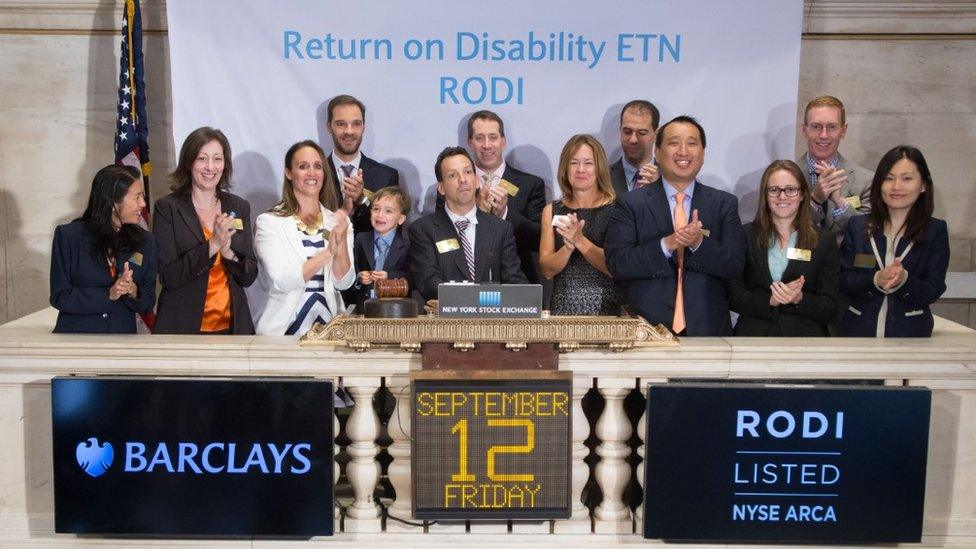
Rich Donovan with his team from Return on Disability
"Quotas and equity laws do not cause hiring, it's the promise of future profits that does. Companies, by their very nature, act in their shareholders' best interests, doing what will grow revenue in the fastest way possible."
Therefore, Donovan says, companies should "attack the market" as they would any other.
"Find out the desires of disabled consumers as they relate to your profitable enterprise, adjust your product and messaging to attract their business then execute this in line with your company's process and culture."
Donovan believes mistakes are often made when companies try to "disable" their business or do just enough to comply with regulations.

Find out more
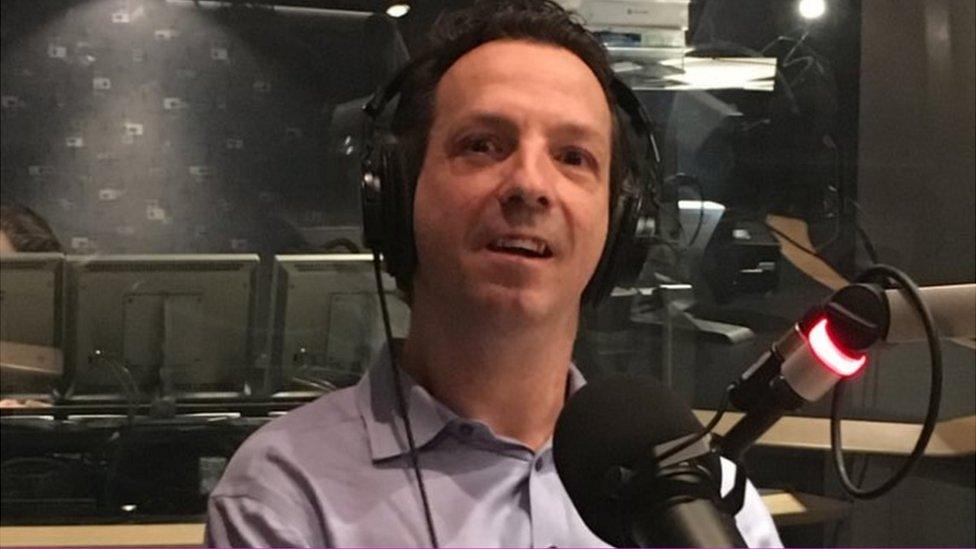
Rich Donovan spoke to BBC Business Daily about the disability market from a studio in Toronto
Listen to Business Daily on the BBC World Service to hear about the daily drama of money and work from the BBC with a special programme for the Disability Works season.

"Disabled people don't want 'special' products," he says. "But they are hungry to be included in the mainstream consumer experience.
"Most companies today look at this as a government regulatory mandate; they're not looking at this as a profitability opportunity, they're not looking at this as an innovation opportunity to improve products for users.
"They're looking at this as a charity effort," he says.
Donovan believes the key to cracking this market is to flip the disabled consumer experience to ultimately benefit the mainstream audience.
"We've learnt that people with disabilities use things very harshly, they use them in extreme ways, and if you can learn how they use things and use that information it makes that core product better for everyone. That way the returns really take off."
The former trader says there is one company that already does this: Google.
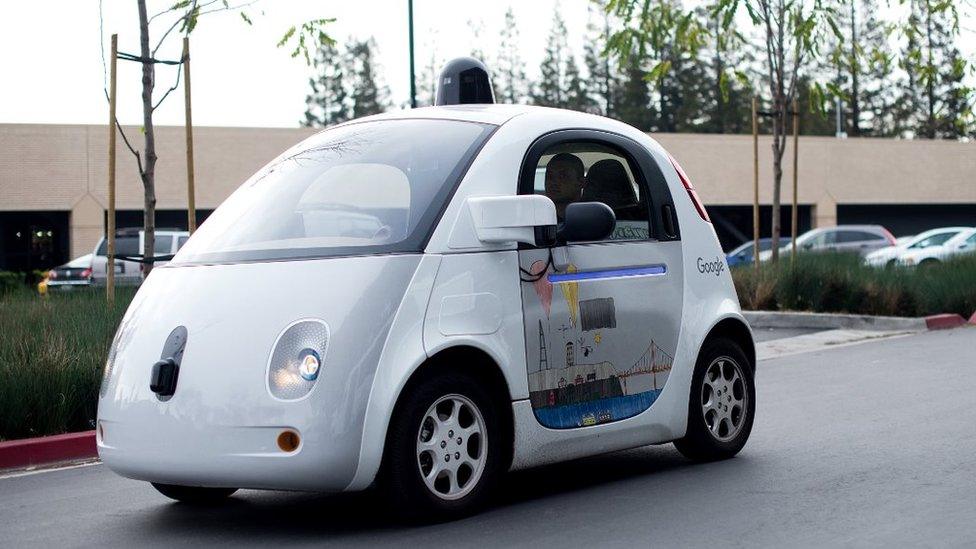
Google has developed a self-driving car which turned conventional ideas on their head
"The core of what they do is innovation and in most of their products there is some disability component. It's at the very core of what they do.
"Look at the Google [self-driving] car - you can imagine the head engineer walking into his team and saying 'OK, build me a car that a blind guy can drive' and that's exactly what they did.
"They're very focused on leveraging disability to make the core product experience better for everyone."
Donovan says the disability market has only really existed within the past decade continues to develop.
"They're still grappling with what that looks like and that process historically takes a few years," he says. "You look back at women and race and it takes a little bit of time to adjust to that reality and disability has just started to do that."
But it is not just the disability market that Donovan's company has been tasked with growing.
His clients have also asked him to apply the same ideas to sexuality and poverty.
Donovan's ambition is to move away from government regulations and to help companies serve non-traditional markets with the aim of ultimately increasing profitability - a process he describes as "figuring out how to 'eat that elephant'".

Disability Works

The BBC's business and economics unit is looking at how businesses work with people with disabilities and how disabled people have made business work for them
A range of stories will feature across online, TV and radio this week
On Twitter and Facebook you can follow the hashtag #DisabilityWorks and at the end of the week you can download the Ouch podcast

- Published13 December 2016